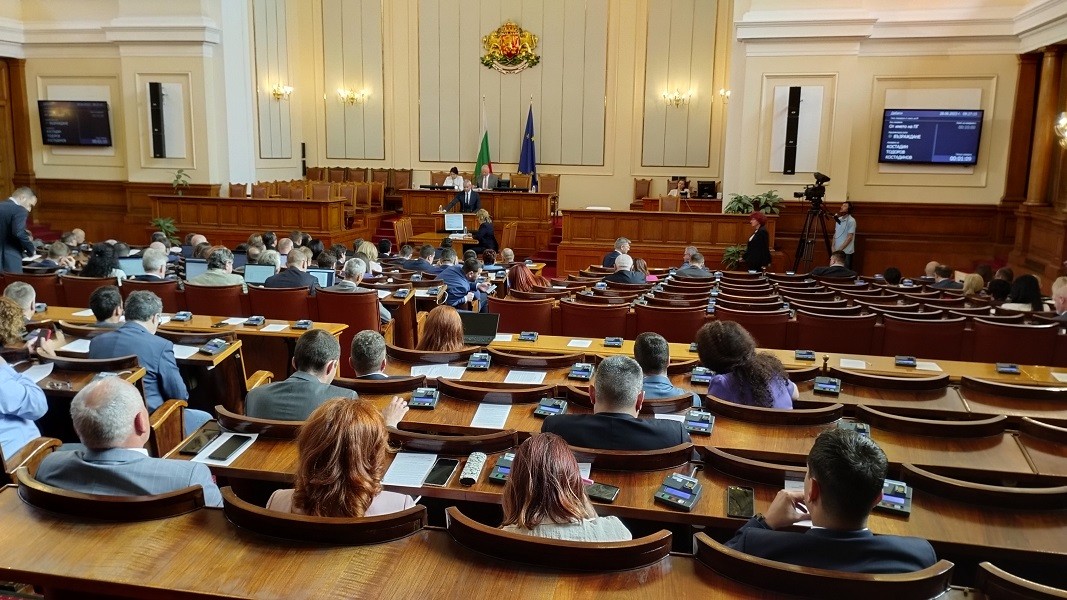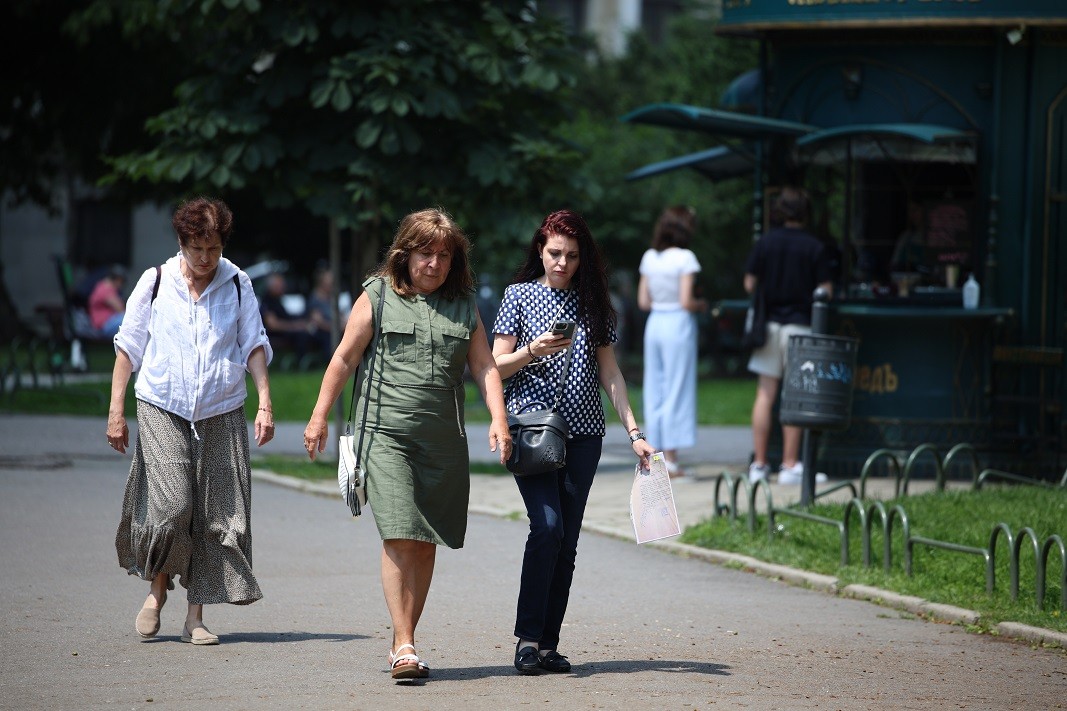Minister of Finance Assen Vassilev presented the draft budget for 2023. In turn, Prime Minister Nikolay Denkov voiced his hope that the MPs from the first parliamentary force GERB-SDS would support it, as it seemed feasible and realistic. However, this is not the opinion of the MPs from the opposition Bulgarian Socialist Party (BSP), who have announced that they will draw up an alternative draft budget. According to them, the budget is antisocial, and it includes revenues from the Recovery and Resilience Plan(RRP). However, there is still legislation to be adopted in order to receive the funds:
"There are 10 laws related to the RRP that have not yet been passed. At the same time, the government is concentrating mostly on political appointments, posts and the distribution of power in the cabinet," Socialist leader Kornelia Ninova said.
What are the parameters of the draft budget for 2023?
Developed within the framework of the Maastricht criteria, the government's proposal is for a regular budget for 2023* with a deficit of up to 3% of GDP, provided that taxes are not increased and social payments are not cut. GDP growth is projected at 1.8%, which is expected to jump to 3.3% next year. Inflation, on the other hand, will fall to 5.6% with an annual average of 8.7%, according to the finance minister's forecasts. Tax policy in the 2023-2025 period is expected to be aimed at improving revenue collection and reducing the administrative burden on citizens and businesses. By the end of this year, €2.4 billion more revenue is expected to be collected compared to 2022, including around €870 million more from VAT.
The minimum monthly salary of €399 remains the same and the monthly allowance for the second year of maternity leave increases from €363 to €399. The funds for teachers' salaries are secured, the funds for all other social programmes are unchanged, some of them even being increased to take account of inflation and the minimum wage rise. Funds have also been secured for a 12% increase in pensions from July 1. One of the main differences with the draft budget proposed by the caretaker government of Gulub Donev is the reduction by more than EUR 1.5 billion of expenditure earmarked for maintenance and capex for projects that have not been launched.
"I saw an increase in the food voucher quota - this was something necessary that would have become a problem if it had not been done. This is probably the only thing I can define as a useful reform," economist Stoyan Panchev told bTV. In his words, there is not a single reform in Mr. Vassilev's draft budget that is mainly aimed at meeting the 3% deficit target, which is one of the conditions for Bulgaria to join the eurozone.
"The budget should not be based mainly on this one criterion", says Rumen Gechev, an economist and member of the National Assembly's budget committee: "The budget deficit only makes sense as an indicator when it is considered together with several other key indicators. Based on the budget deficit alone, one cannot know whether a country has a high or low standard of living. Furthermore, we have heard that the Finance Minister wants to take 100% of the profits of state-owned companies. So it seems that, without affecting the private sector, we will solve the revenue problem in the budget by 'milking' the public sector and leaving it without funds to reinvest and modernise."
Last but not least, according to Gechev, is the fact that the budget discussion will take place in a situation where the two ruling coalitions in parliament do not trust each other and figuratively speaking "one hand does not know what the other is doing".
Will this budget provide people with a decent standard of living?
"So far it seems that with this budget the politicians' promise not to raise taxes and to cancel social payments by the end of this year is being fulfilled", economist Lachezar Bogdanov said in an interview with BNR.
However, the issue will be back on the agenda in September and October when the budget forecast for the next three years will be considered. Then it may turn out that structural changes in the finances and a rethink of some key social programmes are needed. On the other hand, revenues are always at risk and, in that sense, I welcome the idea of increasing tax collection, but this must become a sustainable policy and not a palliative measure for a few months that can then be reversed."
In connection with Bulgaria's goal of joining the Eurozone in early 2025, the possibility of introducing parallel payments in levs and euros is being discussed. The idea was put forward by the Finance Minister, but he said it could not be done this year. Maria Mincheva, Deputy Chairman of the Bulgarian Industrial Association, said: "It will be a challenge when businesses are not prepared. We need at least 6 months to prepare practically for this kind of transition. It will require changes in cash registers, in accounting systems. All this takes time. And we do not know what the purpose of this proposal is."
Mincheva also commented on another proposal made by Assen Vassilev - that wages be paid entirely by bank transfer for hotel and restaurant workers. "On the one hand, there are not enough ATM machines across the country, and on the other hand, such an idea will badly affect people with the lowest incomes and hit seasonal employment, she said. Before introducing such measures, we need to ensure that people will have access to their money."
Whether the draft budget will undergo any changes is up to MPs - it will be debated in the budget committee and then in plenary. In the meanwhile we will continue to follow this story until the budget comes into force, probably in August.
In the next 12 months, the Bulgarian business needs about 262,000 workers and specialists , according to a study by the Employment Agency. This is nearly 9.3% of the currently employed. Compared to the results in 2023, there is a..
There will be pilot testing of ground-based silver iodide generators for hail protection in two zones where the use of rockets is not allowed, the Deputy Minister of Agriculture Ivan Kapitanov said. At a meeting with Claude Berthet,..
The German economy has been shrinking and the government expects a decline of 0.2% of GDP. Some of the main reasons for this include unresolved structural problems related to lack of energy security, excessive bureaucracy and shortage..

+359 2 9336 661
